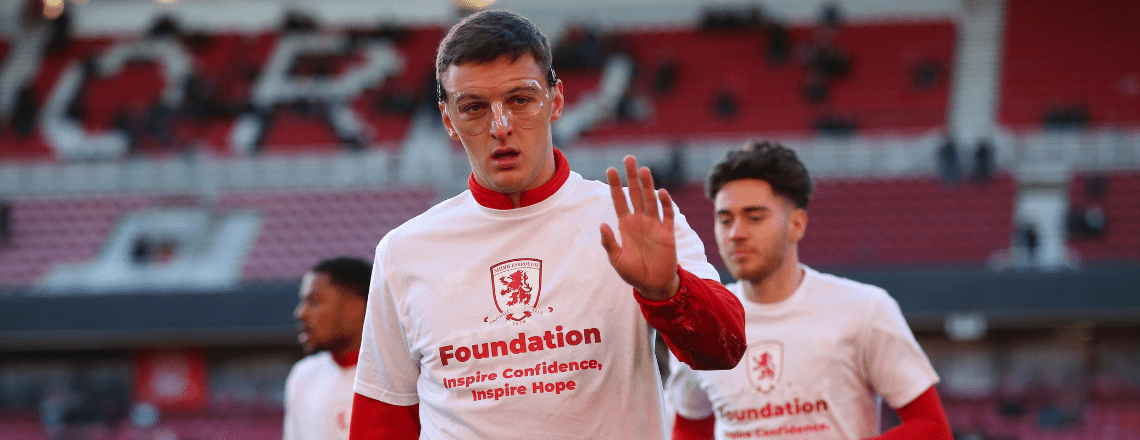
TODAY as part of the English Football League’s (EFL) annual Week of Action, the League has launched a new report highlighting the significant role that its 72 Clubs play in supporting communities across England and Wales.
The report was launched at a roundtable in Parliament with representatives from the EFL, its clubs and Club Community Organisations (CCOs), members of the community and the Sports Minister, the Rt. Hon Stuart Andrew MP.
Produced by research experts Substance using data from 2019 to 2022, the report shows that EFL clubs and their Club Community Organisations (CCOs) generated more than £865m (£865,196,135) of social value to towns and cities across the country through ground-breaking community programmes during the 2021/22 season.
This is the first time a social value has been attributed to the work of EFL clubs as a collective. It represents the estimated savings to public spending and other forms of social value that clubs and CCOs have delivered in areas including physical health, mental wellbeing, education and employment.
In the second version of the ‘Measuring the Impact of EFL Clubs in the Community’ report, EFL clubs are shown to be responding to the needs of their communities at an unprecedented scale with more funding and investment raised than ever before (£101m), more partnerships developed (6,744), larger numbers of staff and volunteers deployed (9,922) and more facilities and in-kind support made available to local people valued at over £40.8m (£40,848,263).
The reach of community work delivered by EFL clubs is vast and during the 2021/22 season, over 840,000 participants were engaged on EFL club community programmes over almost 580,000 hours of community sessions and events – this is an 11 per cent increase on 2018/19. Updated figures show that 80 per cent of the population (47.6m people) in England and Wales live within 15 miles of an EFL club, a reminder that EFL Clubs are important civic institutions that impact the lives of people around the country.
Most recently, this was demonstrated through the Together – Supporting Communities initiative where clubs and CCOs united to roll out initiatives to support those hit hardest by the cost of living crisis.
The report also quantifies the significant impact that clubs had in their communities during the pandemic period with over 40,600 community members engaged in 8,752 COVID-19-related sessions and events resulting in more than 42,000 hours of support.
Shining a light on the impact EFL clubs have, today marks the start of the EFL Week of Action campaign, taking place from January 16th – 20th. Launched in 2017, the Week of Action sees clubs and CCOs from across the EFL’s three divisions showcase some of the most impactful community projects with managers and players joining participants across the country.
Rick Parry, Chair of the EFL, said: “This report provides substantial evidence that our clubs continue to be at the heart of their communities, bringing life-changing opportunities that leave a lasting impact. The need for EFL Clubs to continue as catalysts for social change remains, with an increasing scale of club community work delivered since 2019. Financial sustainability for EFL clubs is key to enabling them to continue as a force for good in their communities.”
Liam Scully, Chair of the EFL Trust, said: “We’re immensely proud of the community support delivered by EFL clubs and CCOs and are thrilled to now be able to put a social value on this good work. We look forward to showcasing some of the most impactful community projects throughout this year’s Week of Action.”
Gavin Mellor, Head of Data and Consultancy at Substance, said: “EFL clubs and CCOs have arguably never been more important to their communities and this report shows just how fantastically they have responded even in the most challenging of circumstances.”
Sports Minister, Stuart Andrew MP said: “The EFL’s Week of Action is a great way to highlight the significant contribution football clubs make to local communities.
“Football is a way of life across England and this research shows just how vital clubs are in bringing people together and fostering a strong sense of pride.
“We are determined to protect these vital community assets, so clubs are placed on a sustainable footing now and into the future and continue to play a central role for generations to come.”
To download a full copy of ‘Measuring the Impact of EFL Clubs in the Community’ report, click here.
For more details on the EFL’s Week of Action, please visit www.efl.com.
Examples of EFL Week of Action activity taking place.
- Burnley’s manager, Vincent Kompany, will visit a local high school to meet with students engaged on a mental health support programme delivered by the club
- Derby County will host a meal attended by community members and special guests to mark the opening of a new Community Hub situated at Pride Park
- Blackburn Rovers striker Ben Brereton Diaz will join participants at the club’s walking football sessions designed specifically for local people with Parkinson’s disease
- Ipswich Town continues to support refugees in the local area through its football projects and will be shining the spotlight on some of this great work
- Middlesbrough’s Michael Carrick will join young players from the club’s PL Kicks session to open a new boot room for the community in partnership with Middlesbrough FC Foundation and The Michael Carrick Foundation
- Blackpool FC will highlight its Winter Warm Up Hub initiative which has been supporting those in need during the cost of living crisis.

